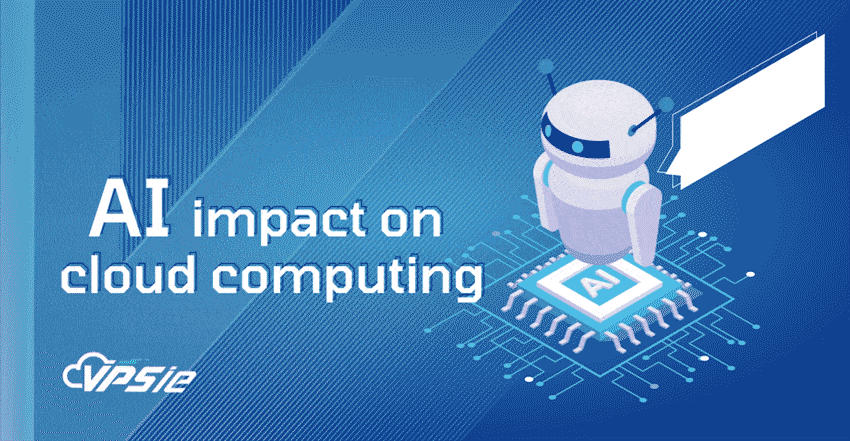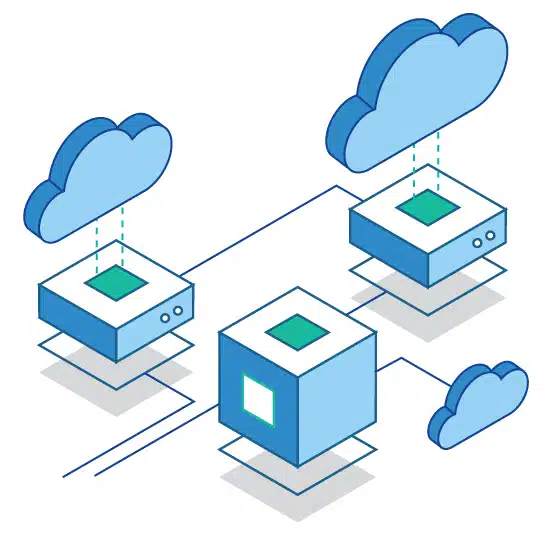The AI Impact on Cloud Computing Services
In recent years, cloud computing has revolutionized the way businesses operate, providing flexibility and scalability like never before. The integration of Artificial Intelligence (AI) technology in cloud computing services has further elevated user experience, making it more personalized and efficient. In this article, we will explore the impact of AI on cloud computing and how service providers like VPSie are leveraging this technology to enhance their offerings and meet the evolving needs of businesses.
Understanding the AI impact on cloud computing
The integration of AI in cloud computing services has undeniably transformed the industry, but it is not without challenges. One such challenge is the possibility that AI algorithms will be biassed or flawed, resulting in incorrect results and decisions. This can have serious consequences, especially in areas such as security, where even minor mistakes can lead to significant breaches. Implementing AI in cloud computing services necessitates a significant investment in infrastructure and resources. This can be a barrier for small and medium-sized businesses that do not have the financial resources to invest in such technology. Despite these challenges, the advantages of incorporating AI into cloud computing services cannot be overstated. AI-powered analytics, for example, can assist cloud providers in optimising the performance of their infrastructure, resulting in more efficient and cost-effective solutions for customers. Similarly, personalised recommendations and real-time customer support via AI-powered chatbots can enhance the overall user experience.
Advantages of AI in Cloud Computing Services
Increased Productivity and Efficiency : AI can significantly improve efficiency and productivity in cloud computing services by automating routine tasks and streamlining processes. AI algorithms, for example, can automate the process of scaling resources up and down based on user demand, resulting in more efficient resource utilisation and cost savings.
User Experience Personalization : Cloud service providers can use AI to provide personalised recommendations and customised solutions to their customers. AI algorithms can provide personalised product recommendations by analysing user behaviour and preferences, making the user experience more engaging and satisfying.
Increased Security : AI can assist cloud service providers in detecting and responding to security threats more quickly and efficiently. AI algorithms, for example, can recognise patterns in user behaviour and detect anomalies that may indicate a potential security breach.
Scalability : AI-powered cloud computing services can quickly scale up or down based on user demand, making it easier for businesses to manage their resources and meet their changing needs.
Savings on expenses : AI can assist cloud service providers in optimising resource utilisation, which results in cost savings for customers. AI algorithms, for example, can detect and shut down idle resources, saving money.
In summary, the benefits of AI in cloud computing services are numerous, ranging from increased efficiency and productivity to enhanced security and personalised user experiences. Cloud service providers can offer their customers cost-effective, efficient, and customised solutions by leveraging AI technology.
Disadvantages of AI in Cloud Computing Services
Real-world applications of AI in cloud computing
Real-world AI applications in cloud computing are becoming more common as businesses seek innovative ways to streamline operations and improve user experience. Chatbots are one notable application of AI in cloud computing. Chatbots, which are powered by AI algorithms, have transformed how businesses interact with their customers. They can handle customer inquiries, make personalised recommendations, and even assist customers in making purchases without the need for human intervention. As a result, businesses can significantly improve customer service while reducing employee workload.
Predictive analytics is another exciting application of AI in cloud computing. Businesses can analyse massive amounts of data using machine learning algorithms to make accurate predictions and identify trends. This technology has numerous applications, ranging from predicting customer behaviour to improving supply chain management. Businesses can use AI-powered predictive analytics to make data-driven decisions, reduce risks, and improve overall performance. For example, VPSie provides cloud-based predictive analytics tools that help businesses gain valuable insights into their data and make informed decisions.
Future implications of AI on cloud computing services
AI’s future implications for cloud computing services are enormous. The possibilities are expanding as technology evolves at a rapid pace. The automation of cloud infrastructure management is one area where AI is expected to have a significant impact. AI will enable cloud computing service providers such as VPSie to more efficiently monitor and manage their infrastructure, reducing downtime and improving overall service quality. AI is also expected to play a significant role in improving cloud security. AI-powered algorithms can detect potential security threats and anomalies in real time, allowing cloud computing providers to take proactive security measures.
Furthermore, AI is expected to improve cloud computing service user experience by making it more personalised and intuitive. AI can also assist in the automation of routine tasks, allowing IT personnel to focus on more complex issues. Several ongoing and upcoming projects are using AI to improve cloud computing services. The development of AI-powered cloud storage solutions is one such project. AI algorithms will be used in these solutions to optimise data storage and retrieval, reducing latency and improving overall performance.
Another intriguing project is the application of AI to edge computing. Edge computing is the processing of data closer to the source, reducing the need for data to be sent to a central server. Edge computing can be optimised for faster and more efficient data processing using AI, making it ideal for applications requiring low latency and high performance. In conclusion, the future implications of AI on cloud computing services are immense. As AI continues to evolve and become more sophisticated, we can expect to see even more personalized and efficient cloud computing services
Finally, AI has the potential to revolutionise cloud computing by improving user experience and increasing efficiency. However, it is important to note that AI has some drawbacks, such as concerns about data privacy and potential job displacement. Service providers such as VPSie are at the forefront of AI-powered cloud computing, addressing these concerns while leveraging technology to meet the changing needs of businesses. We can expect to see even more innovative solutions and transformative developments as AI evolves and becomes more sophisticated. It is critical to embrace the potential of AI in cloud computing while also being aware of and anticipating potential negative consequences.























